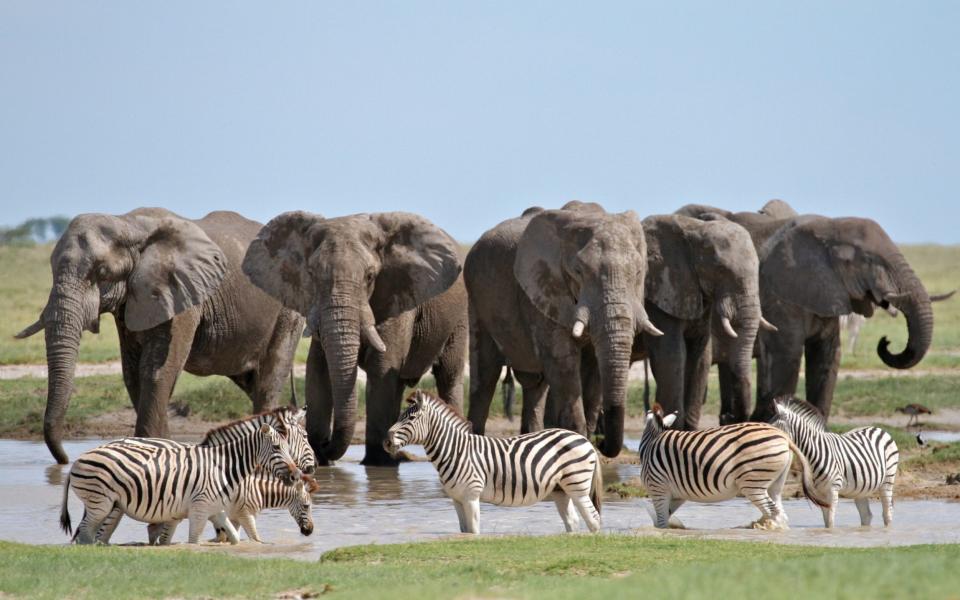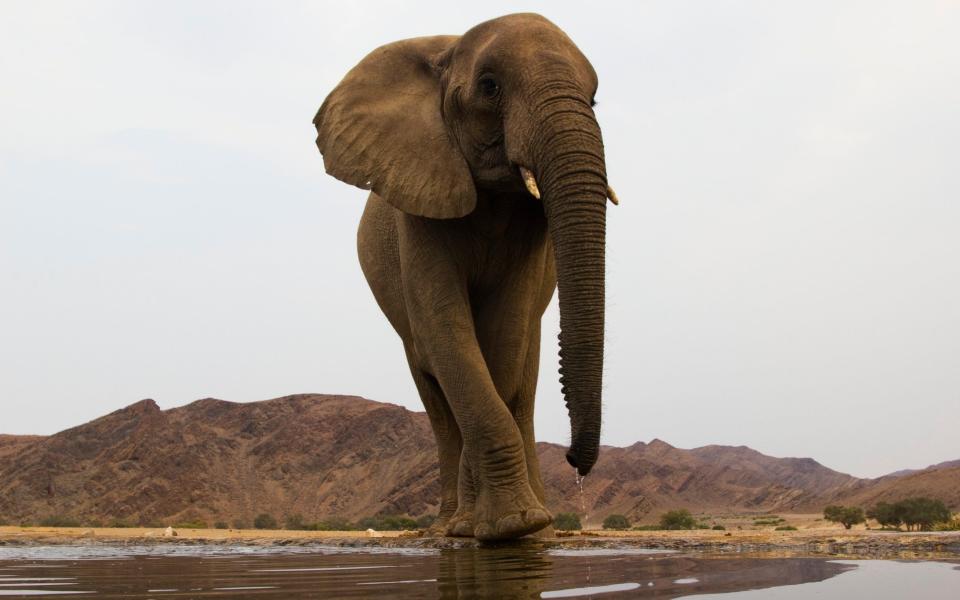Botswana to send 'refugee' elephants home as overpopulation strikes conservation success stories

The plight of the African elephant is well known, declining from around 12 million animals to 400,000 in just a century. Yet, in a handful of countries the opposite problem, overpopulation, made worse by drought and a lack of tourist money, is pushing governments to relocate their tusked giants.
Botswana, a relative safe haven with the largest elephant population in Africa, says it will encourage thousands of its elephant families, many of them refugees from decades of warfare, to trek north to their ancestral homelands in Angola.
Tens of thousands of elephants fled south during more than 40 years of conflict and now Botswana wants them to go home. An agreement is in place to remove fences and clear landmines in the hope that the elephants will migrate of their own accord.
Mike Chase, from Elephants without Borders, said Botswana’s elephant population had become too large and there were conflicts with local farmers and regular food and water shortages.
He said a way to ease this would be to “create safe corridors for elephants to move through, to repopulate and recolonize southeast Angola where there are not so many elephants.”
Wildlife had a hard time during decades of anti-colonial and civil wars in Angola. Fred Bridgland, a British author who covered Angola’s crisis years, told The Sunday Telegraph that the opposition UNITA party had, during the civil war, been involved in poaching.
“UNITA, encouraged by rogue elements in the South African Defence Force at that time, and by Portuguese and Lebanese ‘mafias', slaughtered so many elephants and rhinos... Tusks and horns were exported by trucks... Only now is the rich wildlife of that region beginning to recover,” he said.
Next door in Namibia, the ministry of environment, forestry and tourism ran an advertisement last week offering 170 “high value” wild elephants for sale, blaming lack of space and drought.

Environment Minister Pohamba Shifeta told AFP that the government backed the policy of selling live animals after it was criticised for culling elephants. "We decided – after research – to sell them instead," he said, adding that buyers must meet local and international regulations.
Namibia’s elephant population had dwindled to about 5,000 animals at independence in 1990, but by 2019 it had increased to around 24,000 thanks to conservation programmes.
Namibia is not alone in auctioning elephants. Zimbabwe had been selling its own to China for the last five years, although that trade is now banned. It too cites elephant overpopulation and drought, while Covid-19 has caused tourism income to evaporate almost overnight and left the country struggling to fund conservation efforts.
“We have a competition in Victoria Falls,” said one guide: “Spot the tourist.”

 Yahoo News
Yahoo News 